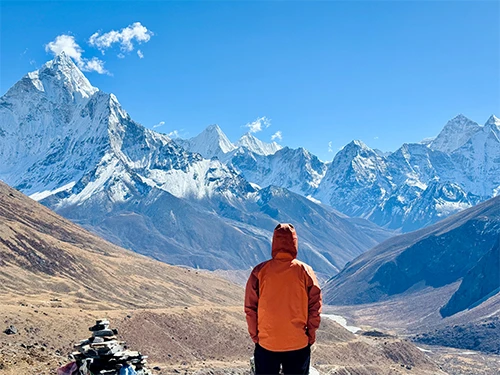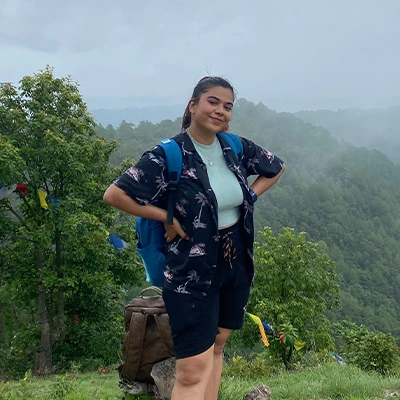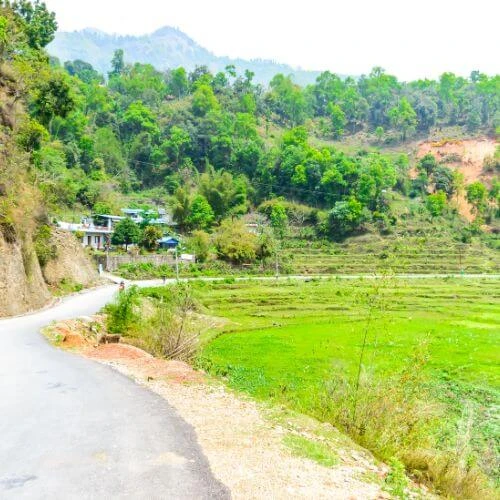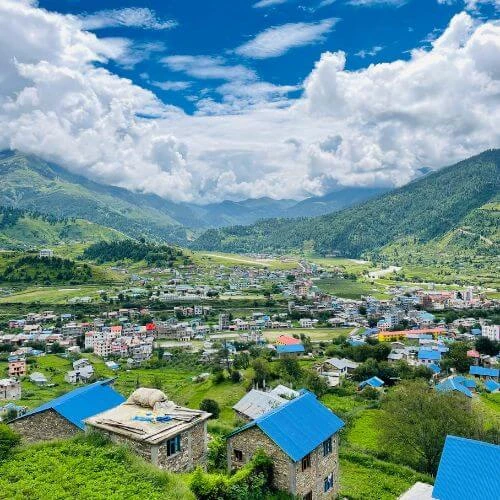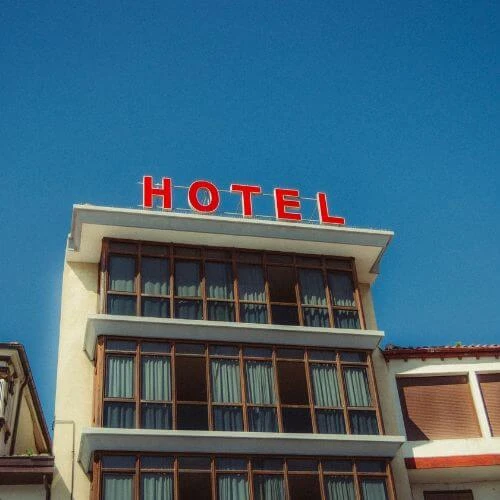The Everest Base Camp Trek Permit is a mandatory document that allows trekkers to enter and travel through the Sagarmatha National Park and the Khumbu region of Nepal. As of 2025, you need two main permits: the Sagarmatha National Park Entry Permit and the Khumbu Pasang Lhamu Rural Municipality Permit. These are required for all foreign trekkers, whether you're going with a guide or part of a group. Without them, you won’t be allowed past official checkpoints along the route.
Everest Base Camp Trek Permits: What You Must Know in 2025-2026
Table of Contents
- 12 days8
Everest Base Camp Short Trek - 12 Days
Price fromUS$990 - 4
Everest Chola Pass Trek- 14 Days
- 11
Everest Three Passes Trek - 17 Days
- 14 days6
Everest Base Camp Trek - 14 Days
Price fromUS$1390
The Everest Base Camp trek is an excellent way to enjoy the Himalayas' breathtaking beauty while standing in the shadow of the world's highest peak. But before you hit the trail, you should take one vital step: get your permits.
Before trekking to Everest Base Camp, every trekker must secure two key permits: the Sagarmatha National Park Entry Permit and the Khumbu Pasang Lhamu Permit. In this guide, we break down the Everest Base Camp trek permit process—costs, rules, solo trekking regulations, and where to apply.
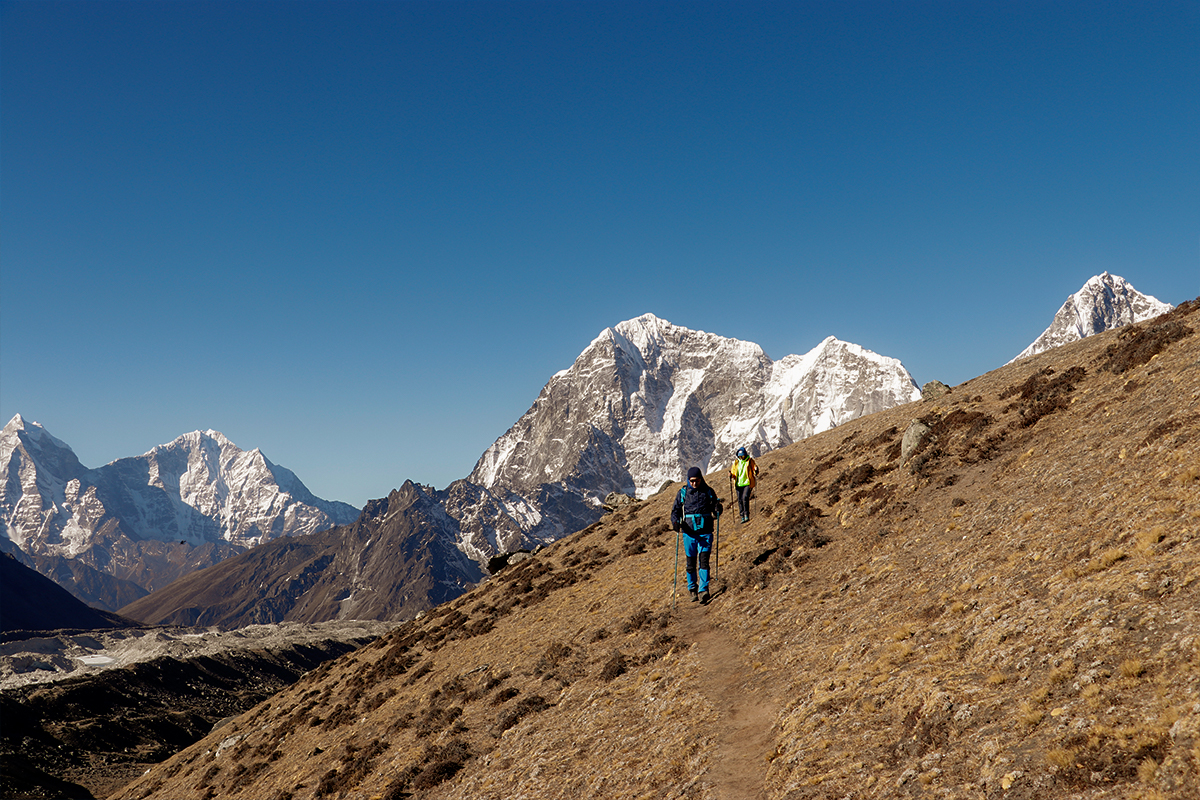
Sagarmatha National Park Entry Permit
Before setting off on your Everest Base Camp adventure, you’ll need the Sagarmatha National Park Entry Permit—your official pass to trek through this stunning UNESCO World Heritage site. You can get it in Kathmandu, at Lukla airport, or through a licensed trekking agency. As of 2025, the cost is NPR 3,000 for foreigners, NPR 1,500 for SAARC nationals, and just NPR 100 for Nepalis. You must show it at various checkpoints. Keep it safe—this little document is your key to the Himalayas.
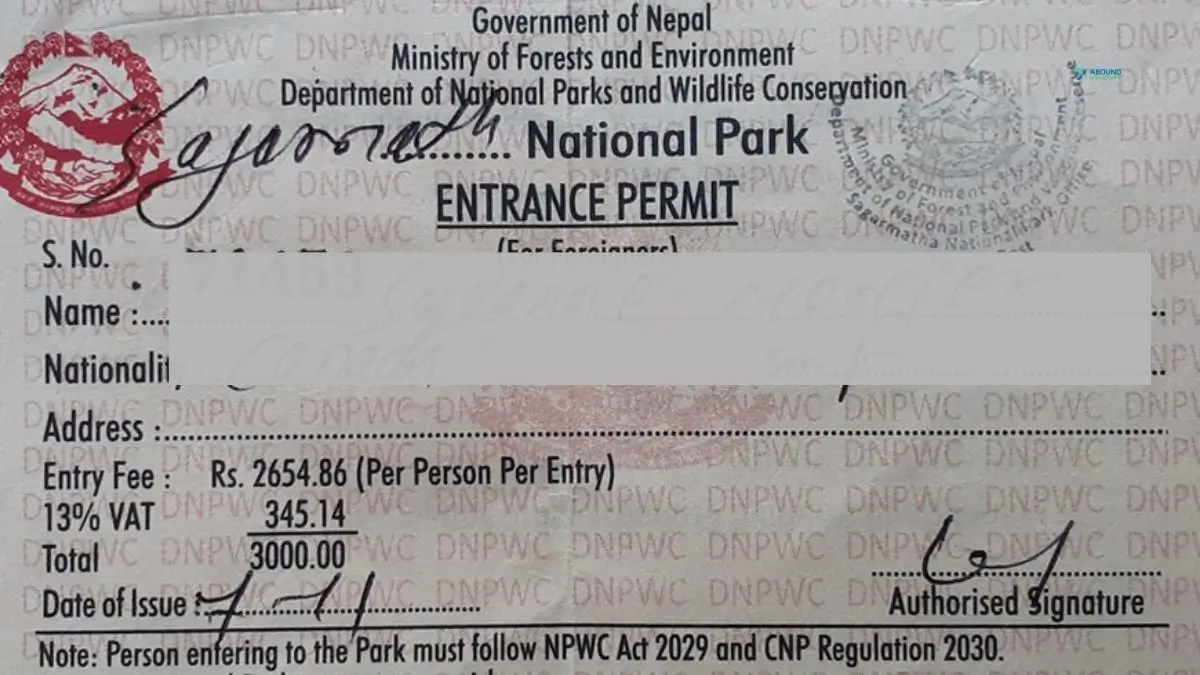
- Where to Get Them? At Nepal Tourism Board offices in Kathmandu, at Lukla airport entry point, or through registered trekking agencies.
- Costs: NPR 3,000 per person for foreigners (as of 2025).
- Valid up to: Enter once; permit expires when exiting the park boundary.
Khumbu Pasang Lhamu Rural Municipality Permit
This permit is a must-have for entering the Khumbu region. This region is a home to the most popular Everest Base Camp trek. You may pick permit up at the Khumbu Pasang Lhamu permit offices in Lukla or Monjo, or let Abound Holidays handle it, ensuring a seamless start to your adventure.
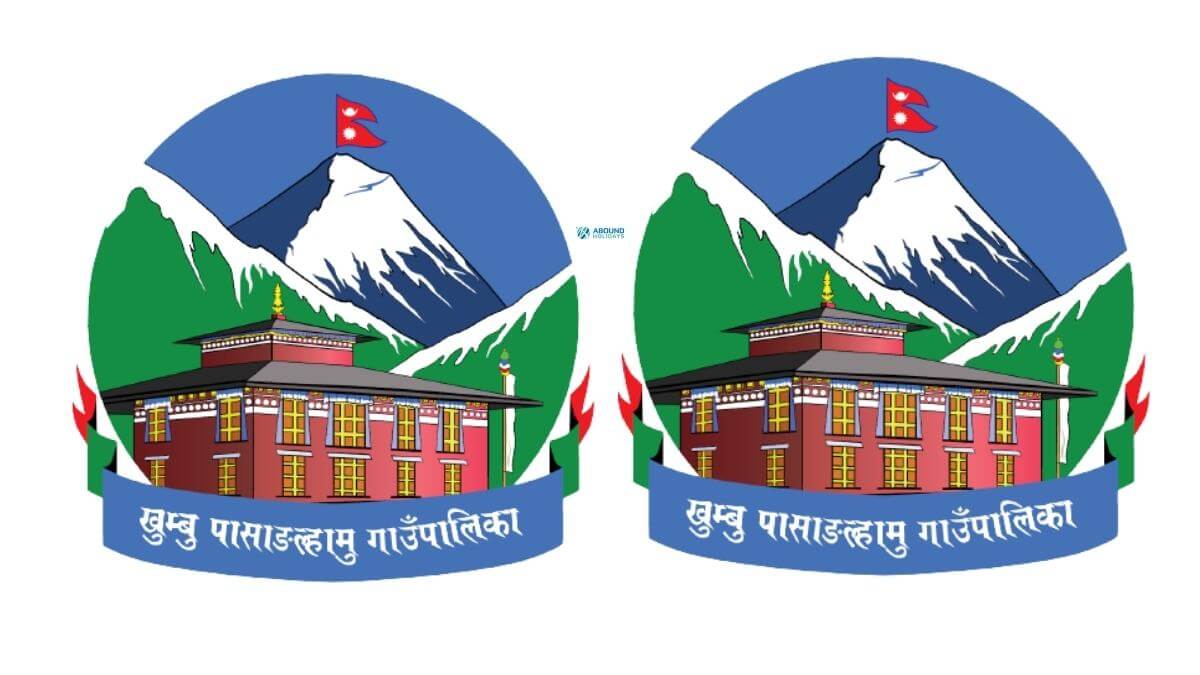
As of 2025, the fee for foreign trekkers is NPR 2,000 per person, NPR 1,000 for SAARC nationals, and NPR 500 for Nepalese. On a normal basis, the first permit can last to up to four weeks, though it is possible to seek extension locally via checkpoints in case you are taking longer hours on your trek. This permit directly supports the local communities, so carrying it isn’t just a rule—it’s a way to give back to the region you're exploring and help sustain its incredible beauty.
- Where to Get Them? At the local Khumbu Pasang Lhamu permit office in Monjo or Lukla, or via licensed trekking agencies.
- Validity up to: The initial fee is generally valid for up to 4 weeks (28 days). If your trek extends beyond this period, extensions are sometimes possible at local checkpoints for an additional fee.
- Costs: NPR 2,000 per person for foreigners
No TIMS Card Required as Everest Base Camp Trek Permit
As of 2025, TIMS cards are no longer required for the Everest Base Camp trek. This aspect makes it easier to have trekkers in Khumbu to get their permit. Nonetheless, it would be possible to get a TIMS card at the Nepal Tourism Board at NPR 1,000, just in case you need one as a souvenir or your agency suggests so. And the thing is that it is totally optional and it is essential not to reconcile your EBC trek.
- Costs: NPR 1,000 if requested.
- Where to Get Them?: As of the recent rules in 2025, there’s no need for a TIMS card for the Everest Base Camp region. If still desired, TIMS can be obtained from the Nepal Tourism Board, but it’s not mandatory.
A table comparing the EBC trek permits: name, where to get, and who needs it.
Permit Name | Where to Obtain | Who Needs It |
Sagarmatha National Park Entry Permit | Tourism Board, Lukla, agency | All foreign trekkers entering Sagarmatha National Park |
Khumbu Pasang Lhamu Rural Municipality Permit | Monjo/Lukla offices, agency | All trekkers entering the Khumbu region |
TIMS Card (optional) | Tourism Board or authorized agent | Only if desired or requested by your guide |
What’s the total cost of permits for the Everest trek?
For most foreign trekkers, the total permit cost is NPR 5,000—NPR 3,000 for the Sagarmatha National Park Entry Permit and NPR 2,000 for the Khumbu Pasang Lhamu Permit. The optional TIMS card is an extra NPR 1,000 if you choose to get one.
SAARC nationals pay less, with the Sagarmatha permit priced at NPR 1,500, bringing their total to around NPR 3,500. Nepali citizens pay just NPR 100 for the national park and a minimal or no fee for the local permit.
- Sagarmatha National Park Permit: NPR 3,000
- Khumbu Pasang Lhamu Permit: NPR 2,000
- Optional TIMS Card: NPR 1,000
- Total for most travelers: NPR 5,000 (USD 35–40 depending on exchange rates)
What documents are required to obtain Everest Base Camp Trek Permit
You’ll need:
- Valid passport (with Nepali visa entry stamp)
- Two passport‑sized photos
- Proof of foreign citizenship
- Licensed trekking agency information (if booking via agency)
- Guide details (required for solo trekkers from 2025)
Can I get the permit online?
Currently, no complete online system exists to purchase Sagarmatha or KPL permits.
You must submit applications in person via registered agencies or at official offices in Kathmandu or Lukla.
Validity and Penalties of EBC Trek Permits
Validity: Every single permit remains valid only when hiking remains within established areas. When you are out of that park then the permit is no longer applicable.
Penalties: Trekking without a valid permit can lead to fines up to NPR 20,000, denied entry, or immediate evacuation.
Are permits refundable if I cancel my trip?
If unused and unopened, Most agencies and offices may issue partial or full refunds upon return of the permit booklet.
After issuing: Once activated (used to enter the park), it is non-refundable. Always check with your agency’s policy.
More Information on Everest Base Camp Permits
Our goal at Abound Holidays is to make your Everest Base Camp trek as seamless as possible, including arming you with all the knowledge you need. Beyond the main permit details, there are often nuances and specific scenarios that pop up. Here, we address those "what ifs" and provide further essential information to clarify any remaining doubts about your EBC permits.
Can I get permits in Lukla?
Yes, both Sagarmatha and KPL permits are available at the Lukla arrival point.
However, we strongly advise obtaining them in Kathmandu in advance to avoid delays and long queues at the airport.
What happens if I lose my permit?
We advise you to report it immediately to the nearest park or government office.
You’ll need to pay for a duplicate permit, which usually costs the standard fee again. Having a licensed guide or agency helps with emergency re‑issuance.
Do I need a TIMS card for the Everest Base Camp trek?
No, TIMS is no longer mandatory in 2025 for EBC region trekkers. As a relic of past procedures, only a handful of trekkers request it voluntarily or if their guide suggests it.
Can I trek to Gokyo or Three Passes with the same permits?
You must purchase additional permits for the Gokyo Lakes or theThree Passes routes. EBC permits are only valid for trails in the Sagarmatha region.
For areas beyond, such as Gokyo or Cho La, you’ll need extra restricted area permits, which are route-specific.
Solo Trekking Permits vs. Guided Trekking Permits: What You Need to Know
Planning your Everest Base Camp trek involved a choice: go solo or hire a guide. But as of 2025, the trekking landscape in Nepal has some important updates, particularly concerning independent travel.
The major lesson? There are new regulations that promote safety in the trails and it is compulsory to have a licensed guide whenever foreign trekkers are visiting the EBC region.

Let's dive into what this means for your adventure and how it shapes your permit requirements.
2023/2024 ban on solo trekking
Due to the safety concerns and regulatory instability in Sagarmatha region, Nepal had banned lone foreign trekkers in the area from year 2023-2024.
In 2025, foreigners must hire a licensed guide (for the EBC region)
As policymakers prioritize safety, the rule remains: foreign solo trekkers must hire a government‑licensed guide or trek with a registered agency.
What does this mean for the permit application?
- Guide information is mandatory on permit forms.
- Agencies apply on your behalf—solo applicants without guide details will be denied.
- Permit fees remain the same, but guide hire costs are additional.
Final Thoughts
Don't overlook permits if you’re planning a journey to Everest Base Camp. These aren't just formalities—they support trail maintenance, local infrastructure, and your safety.
At Abound Holidays, we handle all the Everest Base Camp Trek Permits, including the Sagarmatha National Park Entry Permit, the Khumbu Pasang Lhamu Permit, and an optional TIMS card.
Book your EBC trek with us, and we’ll take care of all the paperwork so you can focus on the hassle-free adventure. Contact Us Now!
Check Our Other Everest Base Camp Trek Packages
Everest Chola Pass Trek | Everest Three Passes Trek | Everest Base Camp Short Trek | Lhasa Tour with EBC | Tibet EBC Trek | Everest Helicopter Tour | Everest Base Camp Trek
Learn More About Everest Base Camp
EBC Trek Map | Safety on EBC Trek | Acclimatization on EBC Trek | How Long Is EBC Trek | Everest Base Camp vs Annapurna Circuit | EBC Trek vs EBC Mountain Flight | EBC Packing List | Reasons To Do EBC Trek | EBC Trek Difficulty | Best Time for EBC Trek
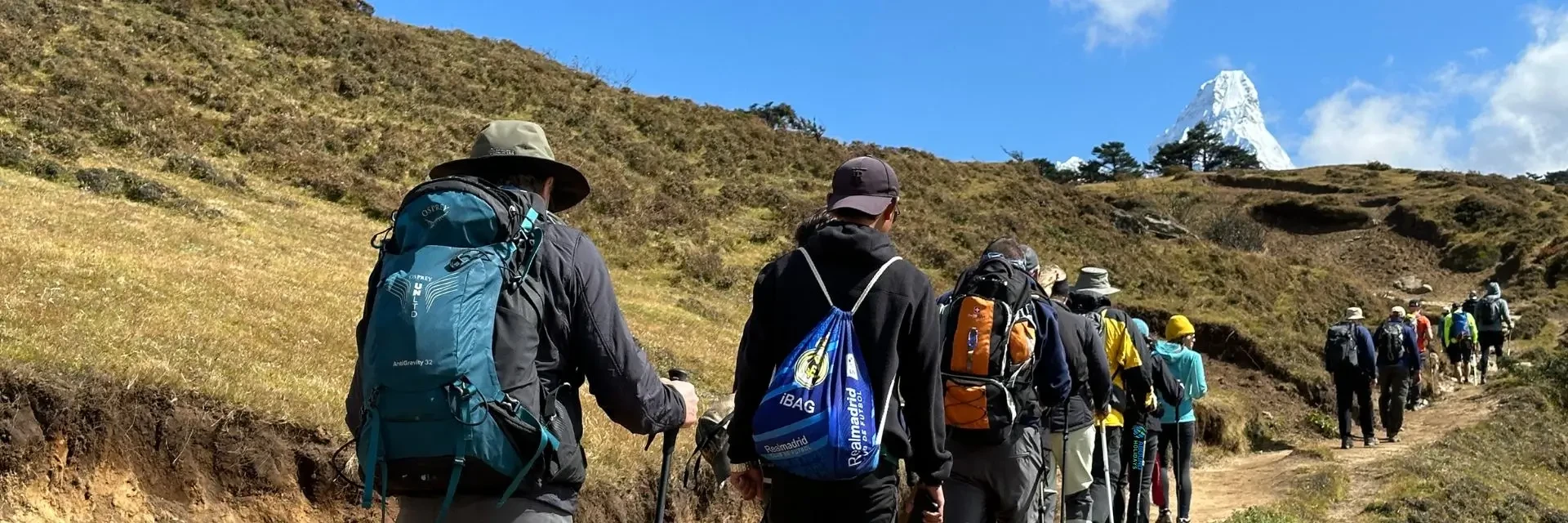
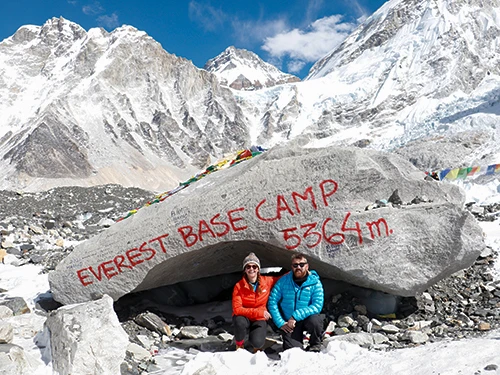
 based on 5 reviews
based on 5 reviews
